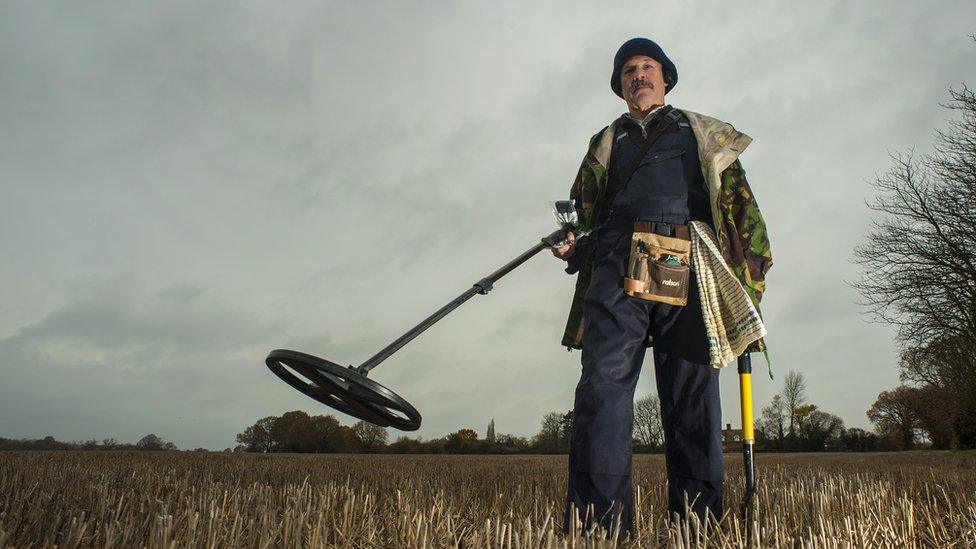Record number of treasure finds as Norfolk tops list
- Published
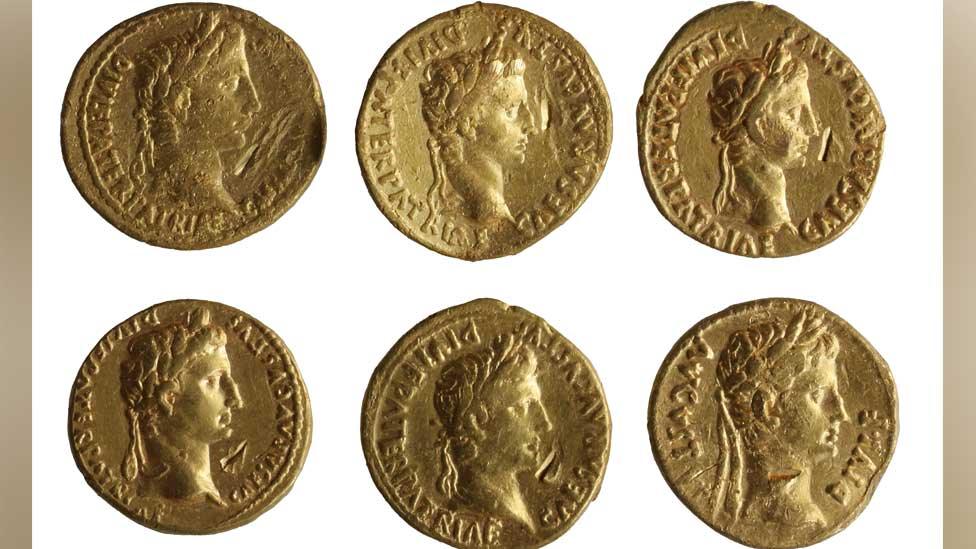
These Roman gold coins found near Norwich were recently been declared treasure
More than a thousand treasure finds were reported last year to coroners in England and Wales - the highest number since the Treasure Act was made law.
The county with the most finds was Norfolk, with 98 of the 1,087 finds reported across the two countries.
The figures have been released by the Ministry of Justice, external (MoJ).
Experts say an increase in reported finds is likely during 2023 because of a new "Indiana Jones" definition of treasure.
The number of finds reported has risen steadily since the act came into force in 1996.
In 1997, just 54 finds were reported.
The number of finds reported in 2022 was 20% higher than in 2021, the government said.

The MoJ said the jump from 908 finds in 2021 to 1,087 was "likely due to the easing of pandemic restrictions".
However, the ministry also claimed there had been "a big surge in metal detecting activity during (and also since) the pandemic".
Under the act, "treasure" included prehistoric objects, coins that contain 10% gold or silver and are at least 300 years old, or more recent valuable objects that have been deliberately hidden.
However, in October, a new definition of treasure, external will be implemented - described as the "Indiana Jones" definition by Norfolk finds liaison officer Helen Geake.
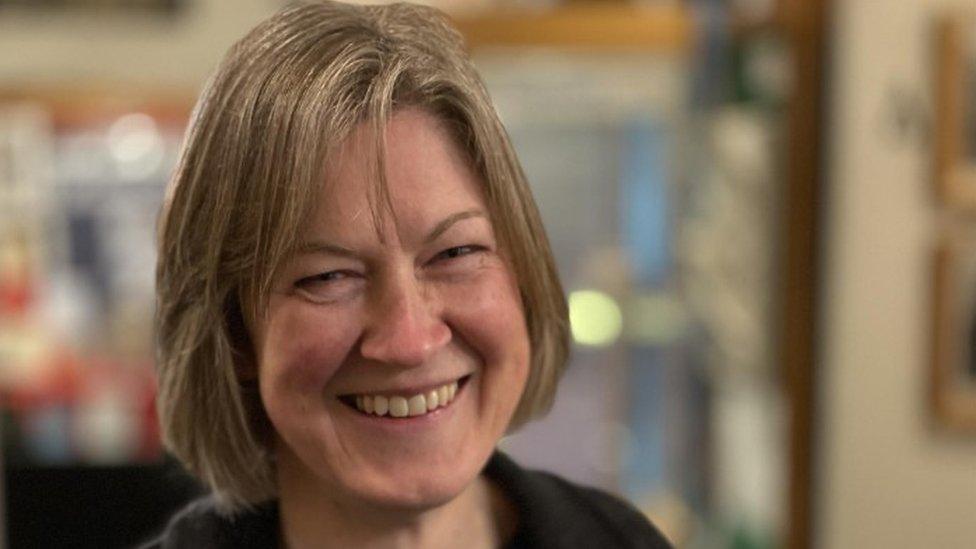
Many of Norfolk's potential treasure finds are assessed by Norfolk finds liaison officer Helen Geake
It will mean objects of historical importance more than 200 years old and containing metal will now fit the criteria of "treasure".
Ms Geake said the new definition provided scope to help preserve items of "exceptional significance" which would not previously have been regarded as treasure.
She said the widened definition was likely to add about five extra finds a year to her team's workload. Nationally, she said she expects fewer than 100 extra finds reported annually.
Asked why Norfolk continued to have more finds reported than elsewhere, Ms Geake said it was down to a long-standing relationship with responsible detectorists, the sheer quantity of items left in the soil and the arable nature of the county, which meant it was easier to search through.

Find BBC News: East of England on Facebook, external, Instagram, external and Twitter, external. If you have a story suggestion email eastofenglandnews@bbc.co.ukor get in touch via WhatsApp on 0800 169 1830
Related topics
- Published4 November 2022
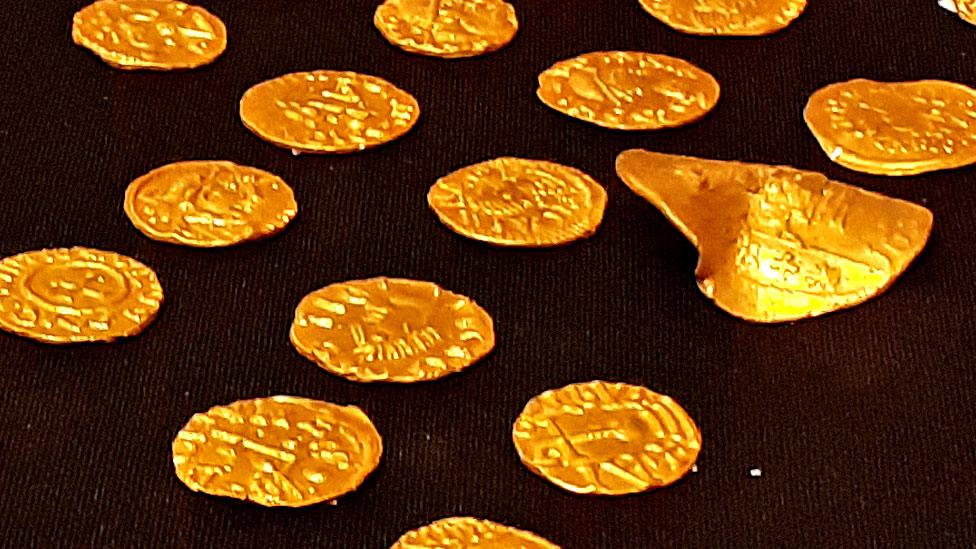
- Published23 November 2017
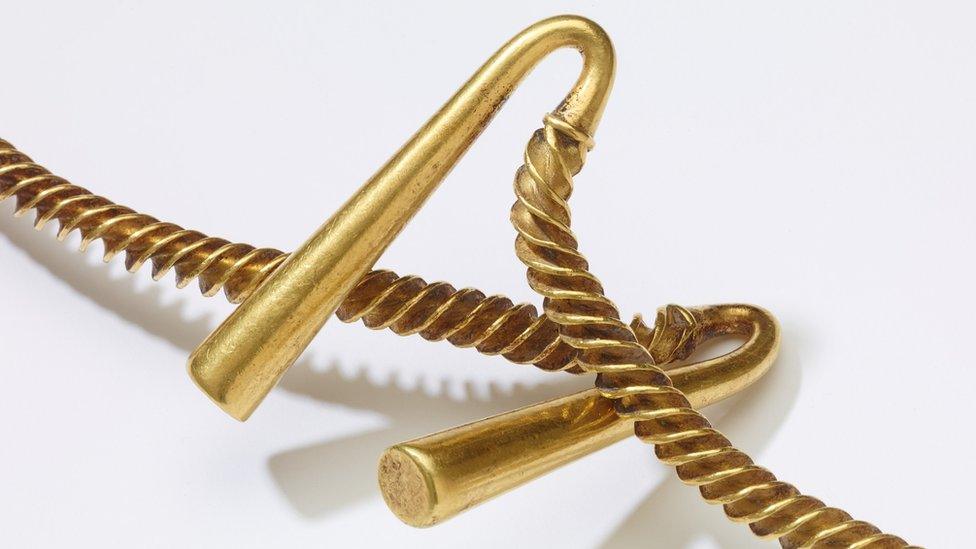
- Published8 November 2017

- Published17 January 2016
